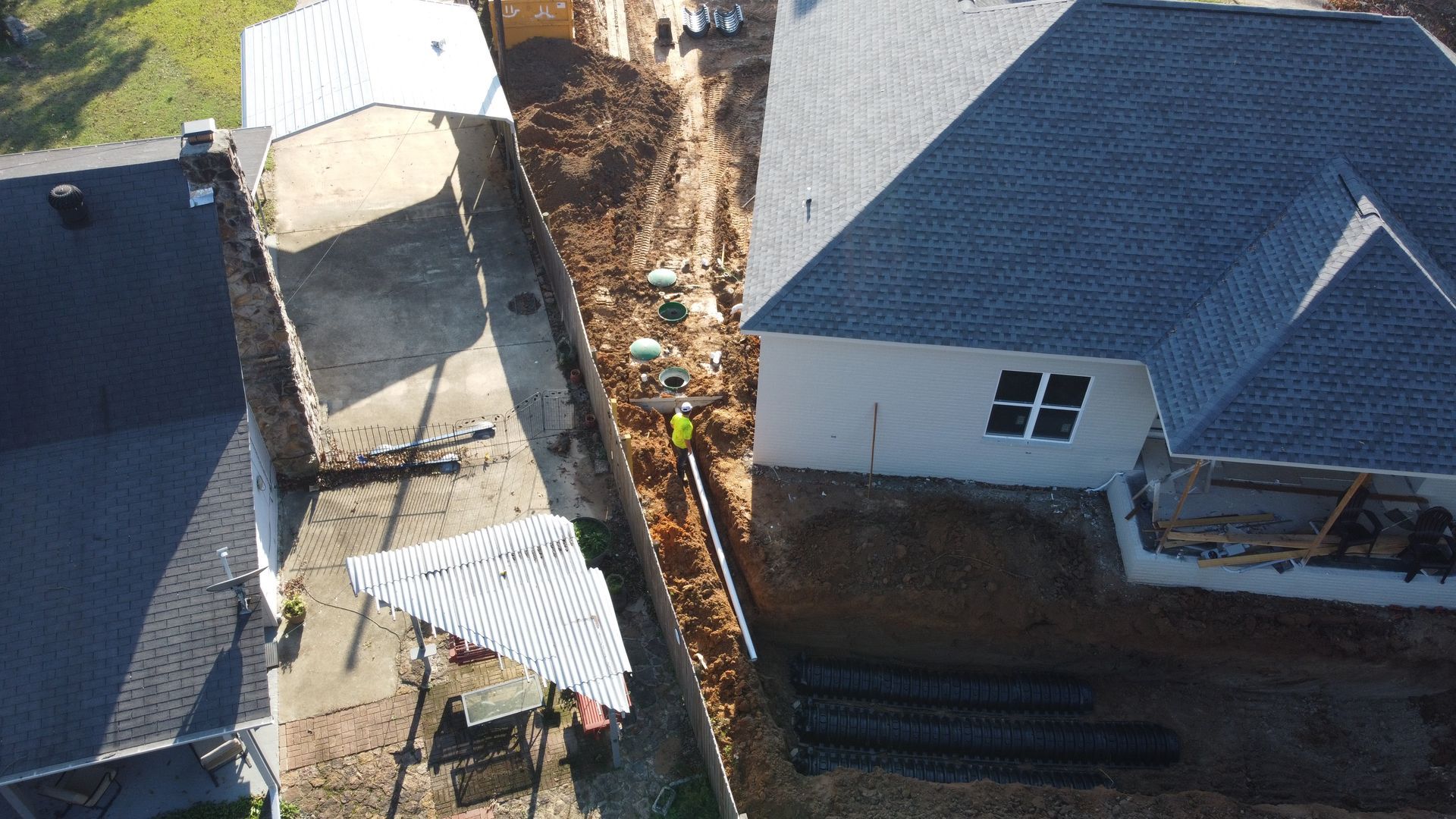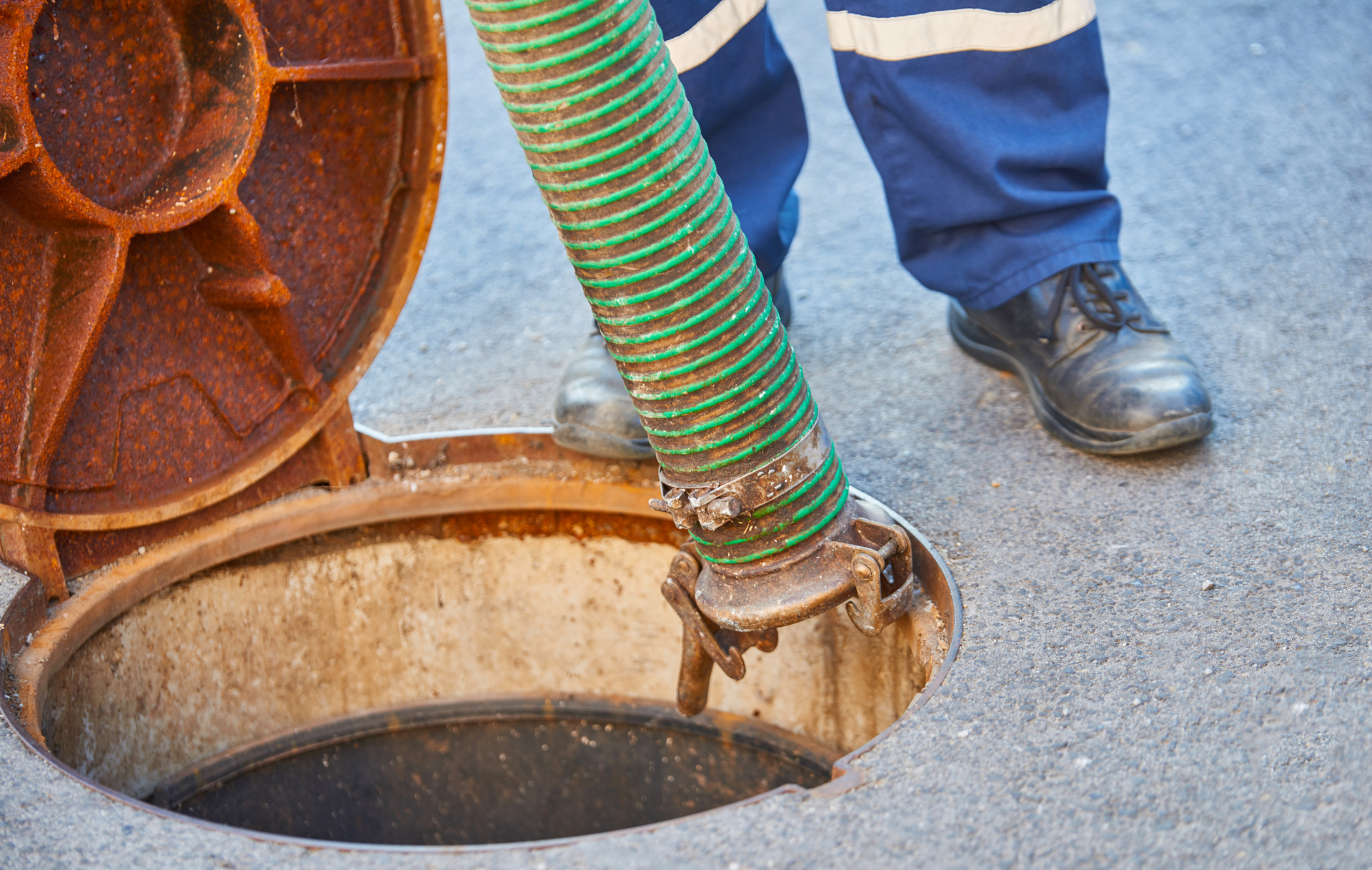Septic System Inspection: When to Call Oxford Septic Services
November 7, 2023
Decoding the Signs: When Should You Call Oxford Septic Services for Septic System Inspection?
A well-functioning septic system is an essential component of any Oxford, Mississippi home. It's responsible for safely treating and disposing of wastewater from your household. However, like any system, septic systems require regular attention and maintenance to ensure they operate efficiently and avoid costly problems.
One critical aspect of septic system maintenance is timely inspection. Regular inspections can help identify issues before they become major problems, ensuring your septic system works as it should. In this comprehensive guide, we'll decode the common signs that indicate a need for a septic system inspection in Oxford, MS.
The Importance of Septic System Inspections
Before we dive into the signs that should prompt you to call Oxford Septic Services for an inspection, let's briefly understand why septic system inspections are so crucial:
1. Preventative Maintenance: Regular inspections can catch minor issues early, preventing them from developing into significant, expensive problems.
2. Compliance: In Oxford, MS, septic systems must adhere to local regulations. Inspections help ensure your system complies with these guidelines.
3. Environmental Protection: Malfunctioning septic systems can contaminate groundwater and nearby water bodies, posing a risk to the environment. Inspections can identify and rectify problems that may lead to contamination.
4. Property Value: A well-maintained septic system adds value to your property. It's an attractive feature for potential buyers.
5. Peace of Mind: Knowing your septic system is in good condition provides peace of mind and reduces the risk of unexpected sewage backups.
Common Signs That You Need a Septic System Inspection
1. Slow Drains and Plumbing Issues
One of the first signs of septic system trouble is slow-draining sinks, showers, or toilets. If multiple fixtures in your home are draining slowly or you frequently experience plumbing backups, it could indicate a problem within your septic system. An inspection can pinpoint the issue.
2. Foul Odors
Unpleasant odors inside or around your home, especially near the septic tank or drainfield area, are a clear sign of septic system problems. These odors may indicate a leak, blockage, or other issues that require prompt attention.
3. Puddles or Water Pooling in Your Yard
If you notice puddles or standing water in your yard, especially around the drainfield area, it's a potential sign of a septic system issue. It may mean that your drainfield isn't properly absorbing and dispersing wastewater. An inspection can help diagnose the problem.
4. Lush Green Grass Over the Drainfield
While a green lawn is typically a sign of a healthy yard, an excessively lush and green area over the drainfield could signal trouble. It might indicate that your drainfield is oversaturated and unable to handle the wastewater effectively.
5. Gurgling Noises
Strange gurgling or bubbling noises coming from your drains could be indicative of a blockage or backup in your septic system. These sounds can be unsettling and should be investigated promptly.
6. Changes in Your Well Water Quality
If your home has a well, changes in water quality, such as a change in taste, color, or odor, could be a result of septic system issues contaminating the groundwater. In such cases, it's essential to address the problem promptly to avoid health risks.
7. High Nitrate Levels in Well Water
Testing your well water for high nitrate levels is crucial. Elevated nitrate levels can indicate contamination from a malfunctioning septic system. Regular testing can catch this issue early and protect your health.
8. Older Septic System
If your septic system is older and hasn't been inspected for several years, it's a good idea to schedule a routine inspection. Aging systems are more prone to problems, and inspections can identify areas that need attention.
9. Recent Heavy Rainfall or Flooding
Heavy rain or flooding can put stress on your septic system, potentially causing backups or issues with wastewater treatment. If you've recently experienced significant rainfall or flooding, it's wise to schedule an inspection to ensure your system weathered the event without problems.
10. Increased Water Usage
A sudden increase in water usage, such as accommodating guests or adding new appliances, can strain your septic system. If you've recently made changes that increased your household's water usage, it's essential to monitor your system and consider an inspection if you notice any signs of stress.
Conclusion
A septic system inspection is a valuable investment in the health and longevity of your system, your property, and the environment. By paying attention to these common signs and promptly scheduling inspections when needed, you can ensure your septic system operates efficiently and avoid the headaches and costs associated with untreated issues.
Oxford Septic Services is your trusted partner in Oxford, MS, for all your septic

Navigating the regulations surrounding septic systems is crucial for homeowners and businesses to ensure compliance, protect public health, and safeguard the environment. In this guide, Oxford Septic Services provides valuable insights into septic system regulations, offering clarity and guidance for property owners. Chapter 1: Regulatory Overview Oxford Septic Services provides an overview of the regulatory landscape governing septic systems, including local, state, and federal regulations. Understanding the regulatory framework is essential for property owners to comply with legal requirements and avoid potential fines or penalties. Chapter 2: Permitting Requirements Property owners may be required to obtain permits for the installation, repair, or modification of septic systems. Oxford Septic Services explains the permitting process, including the application requirements, approval procedures, and associated fees, to help property owners navigate the process successfully. Chapter 3: Inspection and Maintenance Requirements Many jurisdictions have inspection and maintenance requirements for septic systems to ensure proper functioning and prevent environmental contamination. Oxford Septic Services outlines these requirements, including the frequency of inspections, maintenance tasks, and reporting obligations, to help property owners fulfill their regulatory obligations. Chapter 4: Environmental Considerations Septic systems can impact groundwater quality, surface water contamination, and sensitive ecosystems if not properly maintained. Oxford Septic Services discusses the environmental considerations associated with septic systems, emphasizing the importance of responsible waste management practices to protect the environment and public health. Chapter 5: Compliance Assistance Complying with septic system regulations can be complex, but Oxford Septic Services offers assistance to property owners. Whether it's helping with permit applications, conducting inspections, or providing maintenance services, Oxford Septic Services ensures that property owners have the support they need to meet regulatory requirements. Chapter 6: Future Trends and Developments Regulations governing septic systems are subject to change as new technologies emerge and environmental concerns evolve. Oxford Septic Services discusses future trends and developments in septic system regulations, helping property owners stay informed and adapt to regulatory changes proactively. Conclusion: Understanding septic system regulations is essential for property owners to maintain compliance, protect public health, and preserve the environment. With insights from Oxford Septic Services, property owners can navigate regulatory requirements confidently and ensure the proper functioning of their septic systems for years to come.

Septic system failures can be costly, inconvenient, and hazardous to both property and health. Fortunately, with proper maintenance and proactive measures, many septic system failures can be prevented. In this guide, Oxford Septic Services shares valuable tips to help homeowners and businesses avoid septic system failures and ensure the long-term functionality of their systems. Chapter 1: Regular Maintenance Inspections Routine maintenance inspections are essential for identifying potential issues early and preventing costly repairs. Oxford Septic Services recommends scheduling regular inspections to assess the condition of your septic system and address any problems before they escalate. Chapter 2: Timely Septic Tank Pumping Regular septic tank pumping is crucial for removing accumulated solids and preventing clogs and backups. Oxford Septic Services advises homeowners to adhere to a consistent pumping schedule based on factors such as household size and usage to maintain optimal tank capacity. Chapter 3: Proper Waste Disposal Practices Improper disposal of household waste can overload septic systems and lead to system failures. Oxford Septic Services recommends avoiding flushing non-biodegradable items, grease, and chemicals down drains and toilets to prevent clogs and damage to the system. Chapter 4: Protecting the Drain Field The drain field plays a critical role in wastewater treatment and dispersal. To prevent drain field failure, Oxford Septic Services advises property owners to avoid parking vehicles or installing structures over the drain field and to maintain proper landscaping to prevent root intrusion. Chapter 5: Prompt Repairs and Maintenance Addressing minor issues promptly can prevent them from escalating into major septic system failures. Oxford Septic Services recommends contacting a professional at the first sign of trouble, such as slow drains, foul odors, or sewage backups, to prevent further damage. Chapter 6: Environmental Awareness Understanding the environmental impact of septic system failures can motivate property owners to prioritize proper maintenance and care. Oxford Septic Services emphasizes the importance of responsible waste management and eco-friendly practices to protect local water sources and ecosystems. Conclusion: By following these tips from Oxford Septic Services, homeowners and businesses can take proactive steps to prevent septic system failures and maintain the functionality of their systems for years to come. With regular maintenance, proper waste disposal practices, and prompt repairs, property owners can avoid costly and disruptive septic system failures and enjoy peace of mind knowing their systems are in good working order.
